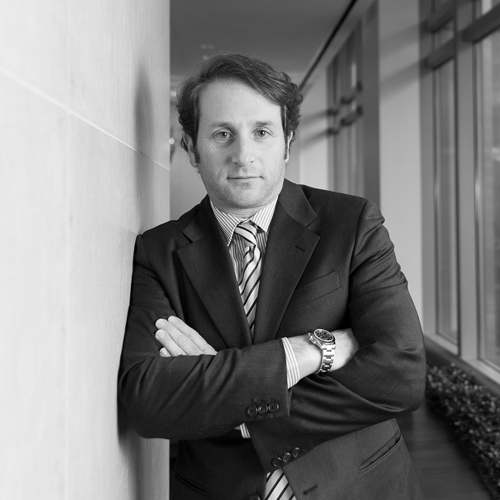Matt Cooper’s days flipping burgers at an iconic American fast-food chain had a lasting impact. While other high school students were simply earning gas money, Cooper was developing a philosophy of leadership that he uses today in a Fortune 500 company. “Most workers hated busy shifts because we still made minimum wage, regardless of the amount of work,” he recalls. “A small group of us got excited about breaking sales records. If you pretend like you own the company, it changes how you work.”
Today, Cooper is the executive vice president of legal at Capital One and manages six direct reports and 160 lawyers and legal professionals. Cooper is responsible for most legal functions, including litigation, IP, and employment for the $24 billion banking, credit card, and finance company. His team also works with the bank, auto finance, card, mortgage, and digital lines of business.
Of all of these responsibilities, Cooper points to one as the most important: talent development. “Throughout my career, I’ve seen the difference between an employee mentality and ownership mentality play out time and time again,” Cooper says. “I look for as many people as possible who have an ownership mentality, because when you have a majority of those people, they pull the rest along.”
Cooper has three goals for talent management: to create a higher purpose, maximize “flow,” and develop leaders. Capital One wants to create an environment that rivals partnerships in private practice. “We work to create a place that attracts top-level talent, and then we develop and retain that talent,” Cooper says. Instead of scouring job boards, employment databases, and résumé piles for interested candidates, Cooper recruits known talent through firms, banks, or partners. By constantly networking with potential hires, he already knows the best options when the company has an opening.
The interview process is Cooper’s chance to screen for an ownership mentality. If candidates seem more focused on their own development than that of the company, he can tell they’re working with an employee mind-set.
Cooper’s talent management goes beyond networking and hiring, though. He looks to create an effective work environment by helping employees connect with their purpose in the organization. “Instead of just talking about who reports to whom and how performance appraisals work,” Cooper adds, “we explain our story and tell them why the bank is here and why legal is here.” Capital One’s guiding purpose is to make people’s lives better. The legal function enables that in various ways. In addition to defending litigation matters to protect the reputation and assets of the company, legal helps its business partners design products that are clear and useful.
The department also pursues litigation when necessary, especially with respect to intellectual property. “If you own a restaurant and someone steals your recipe, you go after them,” Cooper says, repurposing his fast-food experience. “Here, if someone steals our patents or trade secrets, we go after them with the passion of an owner.”
Many years ago, Cooper read the work of Mihaly Csíkszentmihályi, a psychologist who studies why people lose track of time and find themselves “lost” in enjoyable work. Csíkszentmihályi developed something called “the flow model,” which Cooper uses to help colleagues set goals, build confidence, and enjoy their work. “People experience ‘flow’ when they do something they’re great at and push just a bit outside of their comfort zones, so they’re not bored,” Cooper says. In his department, he creates high levels of engagement but tells lawyers to access help when needed. If jobs are too minor or boring, leadership looks for ways to kick them down to lower levels or eliminate them altogether. Along the way, Cooper and his peers provide as many development opportunities as possible, tying into one goal: managers at Capital One need to make themselves replaceable. Cooper argues that companies that maintain leaders they can’t do without tie their own hands. Those managers never get promoted, and organizational growth is stunted. At Capital One, managers are directed to train their subordinates for an eventual promotion to the manager’s job.
All of these efforts create a unique environment that drives Capital One’s legal department. “You spend so much time at work, and we think that time should be enjoyable,” Cooper says. While his philosophies contribute to a happy and fulfilling workplace, they also make good business sense. Capital One’s shareholders expect a good return, and engaged attorneys with an ownership mentality look for solutions to problems rather than simply managing what’s in front of them.
To achieve those results, Cooper doesn’t take himself out of the equation. Part of creating an enterprising team in a productive environment is his performance as a leader, so he evaluates it with his own litmus test. Every year, he asks himself if he would win a reelection bid for his own job. If the answer is no, he has work to do. If the answer is yes, he’s on the right track.


